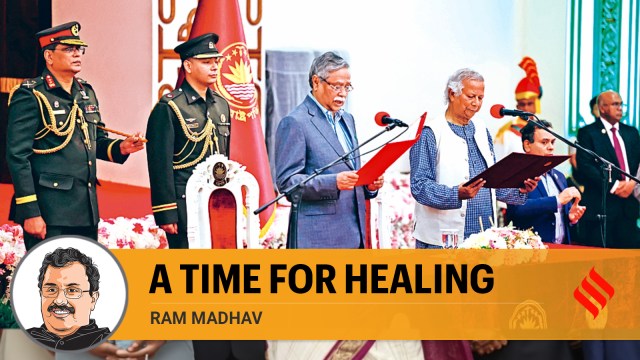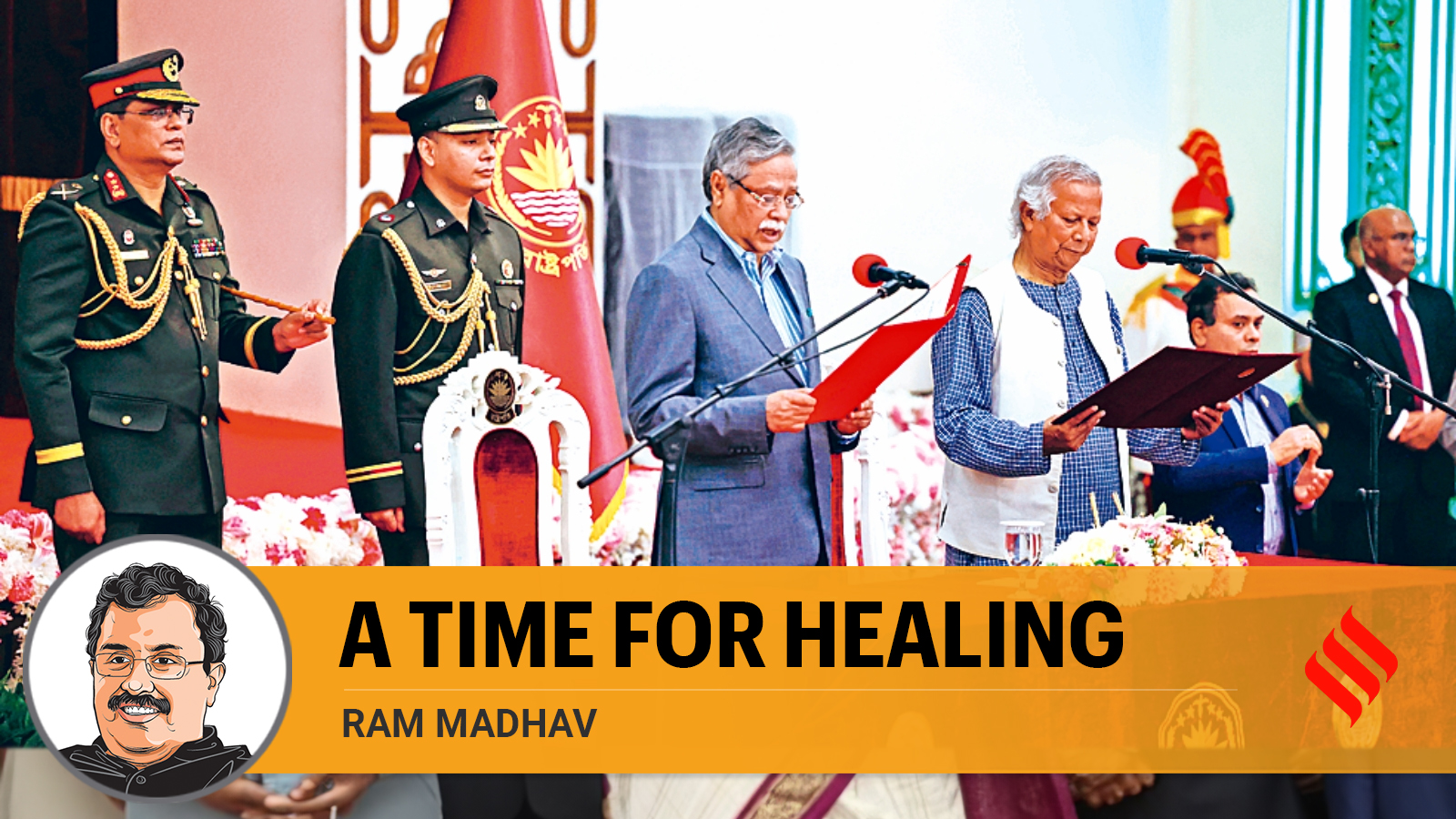
A week ago, nobody would have imagined that the world’s longest-serving woman prime minister, a leader who was once described as the Iron Lady of South Asia and credited with building a modern and secular Bangladesh during her record 15-year rule, Sheikh Hasina, would become a fugitive, running away from the country that she had carefully built. Nobody can deny that Hasina presided over the spectacular rise of the eighth-largest country in the world from an underdeveloped economy to the shining star of South Asia. During Hasina’s last three terms as prime minister, Bangladesh’s economy grew three-fold, from $155 billion in 2010 to $450 billion in 2023. She fought back against Islamic radicals and came down heavily on the terror infrastructure. She built a broadly secular dispensation, often coming to the rescue of the country’s minority population including Hindus, Christians, and Buddhists. From Time to Forbes, several magazines named her as one of the most influential women leaders in the world.
Hasina’s current plight may seem incongruous to many. Some may blame groups like Jamaat-e-Islami or the opposition BNP for the situation, while others may see a “foreign hand” in it. But it would be a mistake to interpret the revolt through such extraneous factors alone and miss the reality that this agitation by millions of youngsters was the manifestation of deep-rooted anger. Hasina’s good work for the upliftment of the people of Bangladesh must be acknowledged. At the same time, it cannot be ignored that resentment was brewing among ordinary citizens, especially in the aftermath of the growing economic travails after the Covid pandemic and elections in January this year.
Prosperity grew in Bangladesh, but together with economic inequality. One estimate suggested that over 30 per cent of the country’s GDP went into the coffers of top 5 per cent households, while the bottom 50 per cent witnessed their share decreasing to 19 per cent. Unemployment and inflation also plagued this country with a massive young population. Eighty-three per cent of the unemployed are within the age group of 15 to 29 years. The combustive situation needed just a spark to flare up.
That spark came when the High Court in Dhaka reinstated quotas in government jobs in early June this year. Bangladesh had a complex quota system in which around 56 per cent jobs were reserved for various categories — 30 per cent for the descendants of Mukti Yoddhas, families of those who fought for the country’s independence in 1971, 10 per cent each for backward districts and women, 5 per cent for minorities and 1 per cent for the physically challenged. This quota system, introduced in 1972 by Mujibur Rahman, triggered agitations several times in the past. The major resentment was against quota for the families of mukti joddhas, which was seen by many as a reward for the Awami League cadres.
Protests against this quota system have broken out at least twice in the last decade. In July 2013, Bangladesh Civil Services aspirants launched protests that quickly spread to other cities resulting in the government deciding not to apply quotas that year. Protests erupted once again in 2018 leading to the deaths of a number of people and forcing the Hasina government to withdraw quotas. Their restoration by the High Court in June triggered the youth revolt this time.
Castigating this outburst of the students as “terrorism” or pejoratively describing them as “razakars” – a term used for pro-Pakistan paramilitary forces during the liberation war — and deploying the ruling party’s student wing to counter the agitating students were all ill-conceived moves, which aggravated the situation. Excessive force used by security forces resulting in deaths was also highly uncalled for. The government’s failure to seize the opportunity when students decided to suspend the agitation after the Supreme Court’s order of annulling quotas on July 21 is inexplicable. It may be worth recalling that it was the same youth force that had helped Sheikh Hasina come to power before. In 1990, Bangladesh saw a similar uprising by students, workers, teachers, and professionals against the military rule of General Ershad that forced the army’s retreat into the barracks and brought democracy back.
The challenge before the youth that spearheaded the agitation is to ensure that the gains of the last few decades are not frittered away. So far, the student leaders have demonstrated maturity. Bringing a Nobel laureate and a highly respected leader, Muhammad Yunus, to head the interim government is one such move. Bangladesh needed a leader who can heal and unite. Yunus commands respect among the masses.
Bringing order and peace to the country will naturally be his top priority.
During such periods of unrest in the past, fundamentalist forces have exploited the situation to subject the country’s minorities, especially Hindus, to atrocities. The Hindus of Bangladesh stood by their Muslim brethren during the fight for liberation and were subjected to the worst atrocities by the Pakistan army. They remained proud Bengali citizens of the country after its creation in 1971. Yet, the very forces that sided with the Pakistan army during the liberation war continued their atrocities against the Hindu, Buddhist and Christian minorities in the last five decades.
Yunus, himself a mukti joddha, mobilised support for the liberation war in America as a student, would understand well the mission of Bangabandhu in building a modern, secular and democratic Bangladesh. Despite his differences with Hasina, he would understand well the inalienable relationship between Bangladesh and India and the need to strengthen it.
Regime change is Bangladesh’s internal matter. But as Yunus himself pointed out a few days ago, “if there is a fire in the brother’s house, how can I say it is an internal affair”? Bangladesh’s peaceful rise is important for all in the region, especially India.
The writer, president, India Foundation, is with the RSS. Views expressed are personal
© The Indian Express Pvt Ltd
First uploaded on: 10-08-2024 at 07:22 IST



